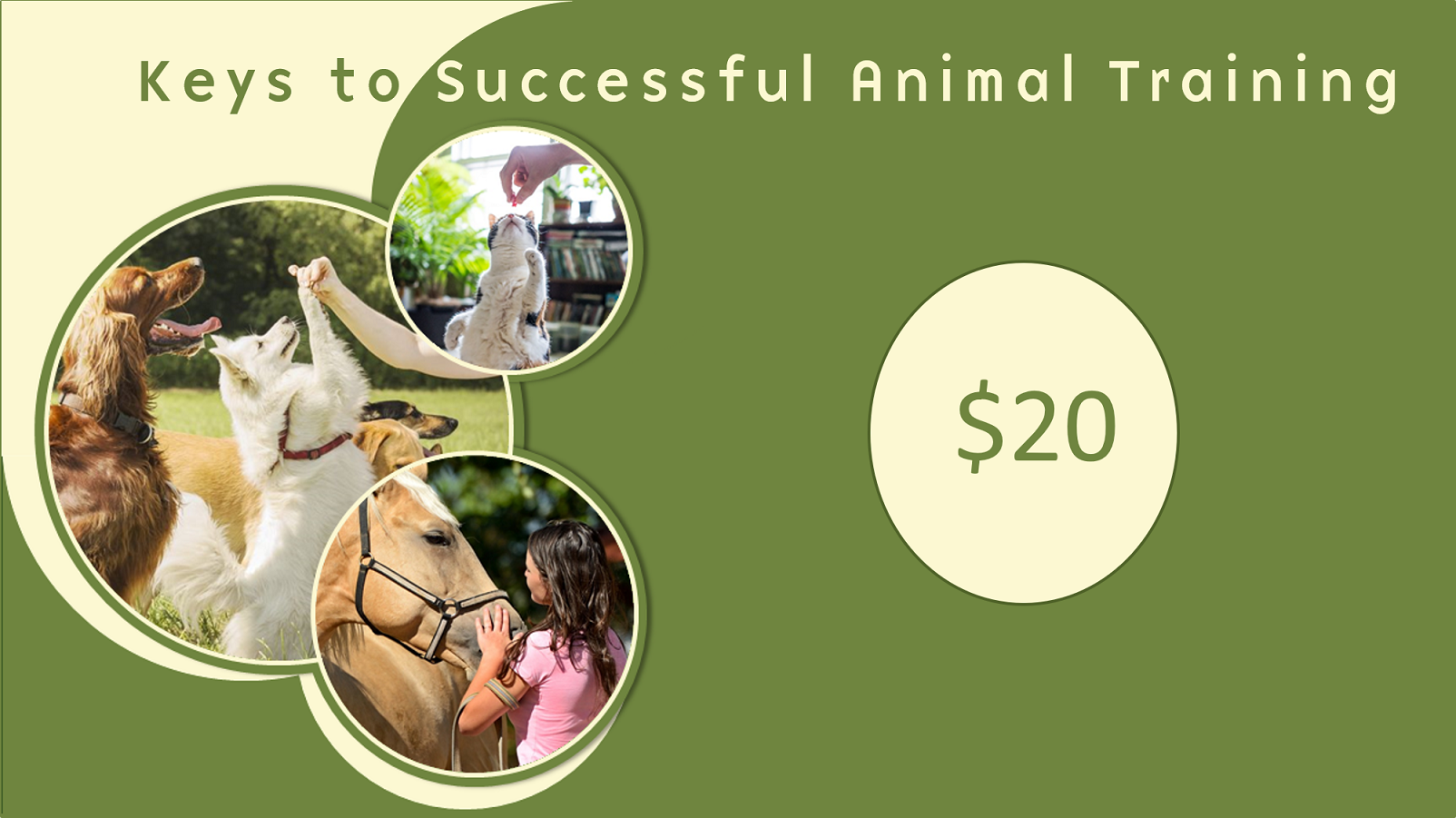This course is unfortunately closed. If you’re already a student, sign in here.

Are the animals in your care misbehaving – or not responding to your cues?
Successful animal training will help improve your relationship to your animal, reduce fear and stress, and empower the animal to take an active part of his own care. To train effectively, you need to understand why animals do what they do, and motivate them to do what you desire.
Whether you’re a dog owner, a horse person, a vet or a zoo keeper, this short course is for you!
It will open your mind to all that’s possible when you start intentionally training your animal, such as:
If you found those ideas exciting, keep reading!
The Keys to Successful Animal Training is not a checklist of the things you must do to get the behaviour you need, where you mindlessly just copy what I tell you to do step by step.
No – this short course will launch your animal training mindset, so that you can start coming up with your own training plans. So you can understand why the animal isn’t collaborating – and what you can do to help change his mind.
To change your animal’s behaviour you need to understand how to communicate what you would like him to do, and how to motivate him to go along with your wishes.
In the short and super dense course Keys to Successful Animal Training, I will teach you. Here’s what’s covered in 10 videos (altogether about 50 minutes):
Not sure if it’s for you? Here’s what some of the people who’ve gone through this training said:
When you become a student, you’ll be getting a few course-related emails over the next week. I’ll also keep you posted on my upcoming free webinars, masterclasses and other courses, as well as when I publish new blog posts about animal behaviour, training and wellbeing!
Spend 50 minutes with me learning the Keys to Successful Animal Training – if this is all new to you I think it might very well might be the most important and useful thing you could do all week – your animal will thank you!
See you on the inside! * 🙂
* local tax may be added as you purchase the course. Course access is 6 months, so there’s no rush!
This course is unfortunately closed. If you’re already a student, sign in here.
5 replies on “Keys to successful animal training”
I never miss a chance to hear your teaching, thank you again and again for inspiring me and helping me on my endless journey of Compassionate communication with animals and human.
You’re welcome Michkella! 🙂
Thanks
Thank you, dear Karolina, for such an inspiring course. Although these are things I know and use most of them in my work, I am extremely grateful for the repetition. Sometimes it is necessary to simply remember some details and go back a few steps in order to better understand some situations, and you present them in such an interesting and educational way.
You’re welcome, Aleksandra! 🙂